Red Flags (and False Alarms) You May See at Roadside Zoos
Did you find yourself at a roadside zoo, perhaps while chaperoning a field trip or joining a family outing, not knowing that your ticket supports suffering? Our ideas for animal-friendly activities will have you set for next time, but you need to know whether what you witnessed should be reported. Roadside zoos differ from facilities accredited by the Association of Zoos & Aquariums in many crucial ways—most notably their deplorable and nonexistent standards of care. There’s a very real chance you may need to report a zoo operating as a roadside attraction after you spot animals in grave need of help.
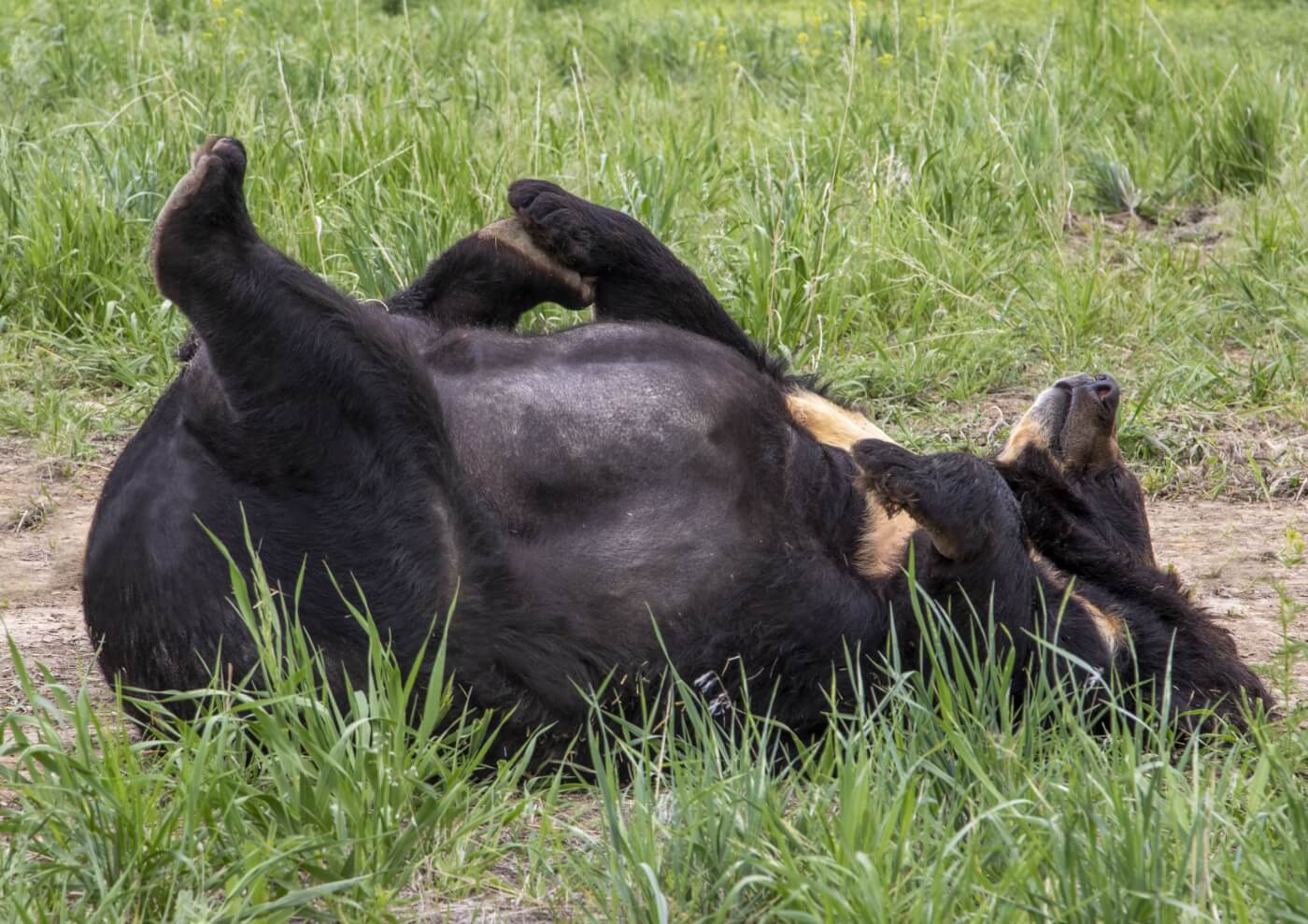
How Do I Know Whether I Need to Report a Zoo?
Since knowing what to look for is an important part of reporting welfare violations, we’ve compiled a list of false alarms that are normal for certain animals as well as common red flags you can identify.
Chalk These Up To Biology!
Sometimes, you may see an animal and worry about their condition, only to learn that they’re experiencing something that’s normal for their species. Here are the top false alarms we’ve noticed. Hopefully, they can save you some worry.
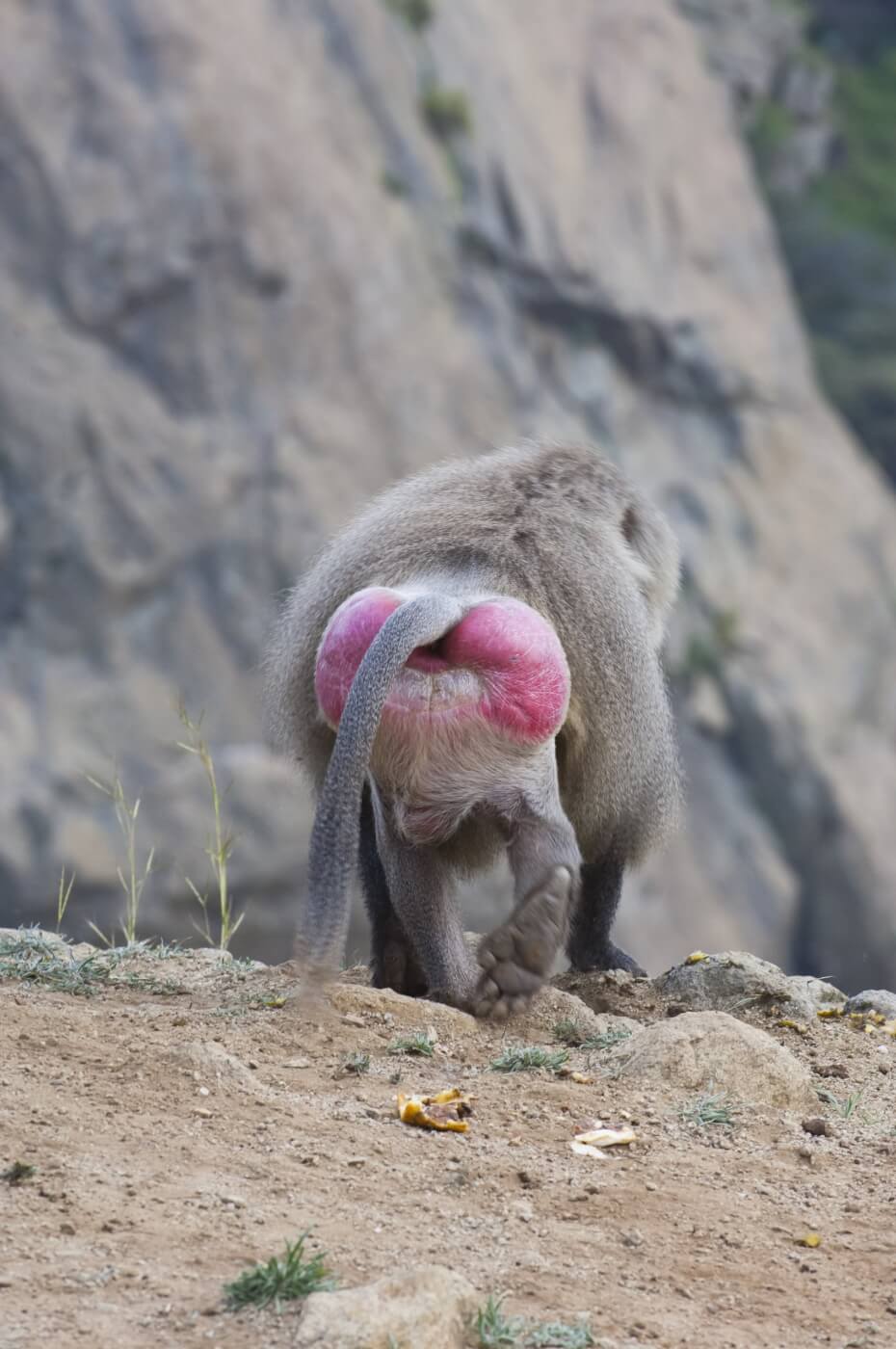
Redness—on the Face or Butt—Is OK in Primates
If you see a primate with redness and swelling on their buttocks, don’t worry. It’s a very natural form of sexual swelling, common in female macaques, baboons, mandrills, and chimpanzees. It isn’t painful and indicates sexual readiness as part of their estrous cycles. Macaques, mandrills, and some other primates even go red in the face.
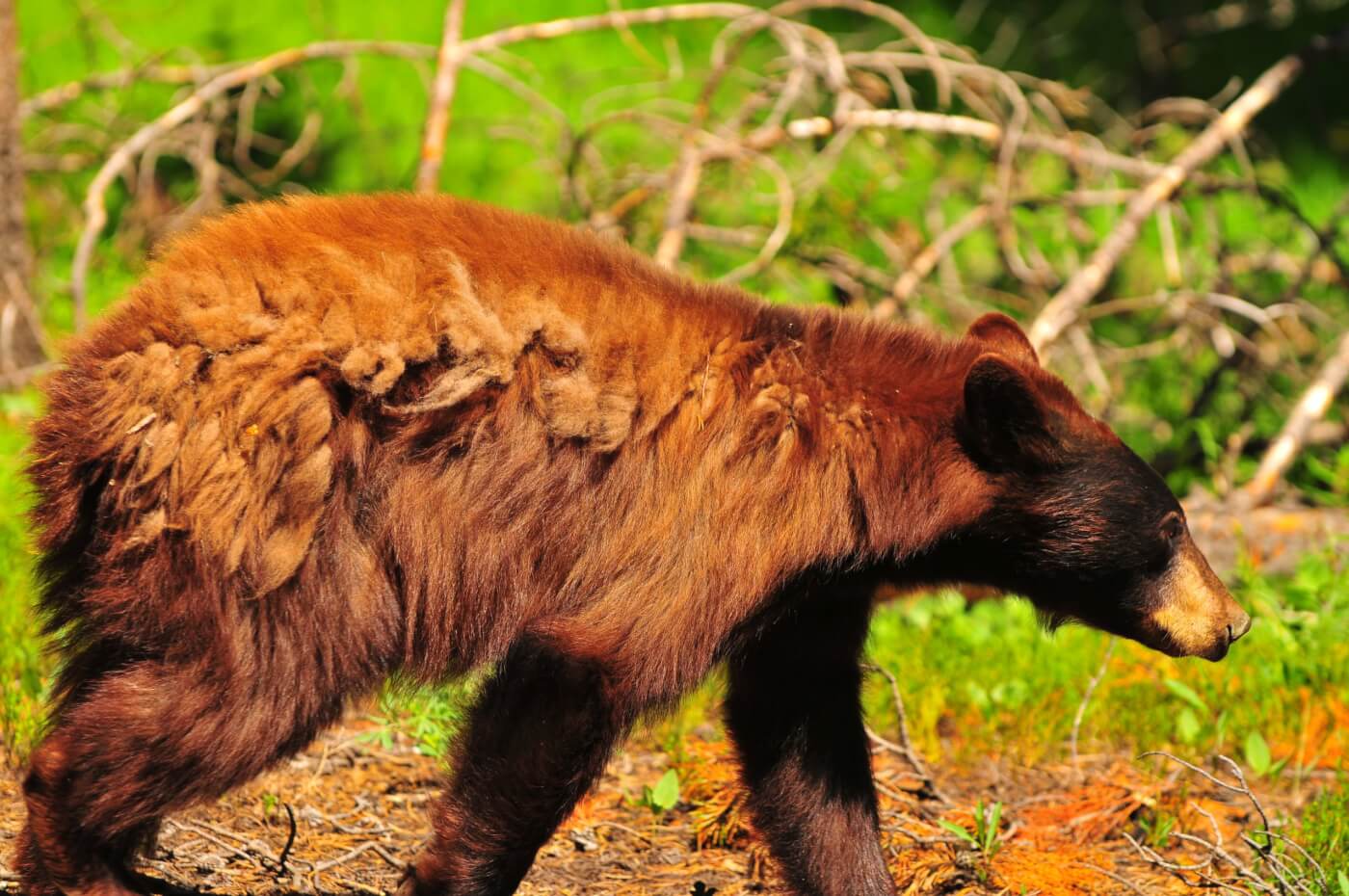
Bears With Bedhead
When bears hibernate—from November to April—their bodies enter a stupor and slow down with very little to no activity at all. When they emerge from their dens in April, their hair will be matted and messy. This is normal, and the mats will fall off in time.
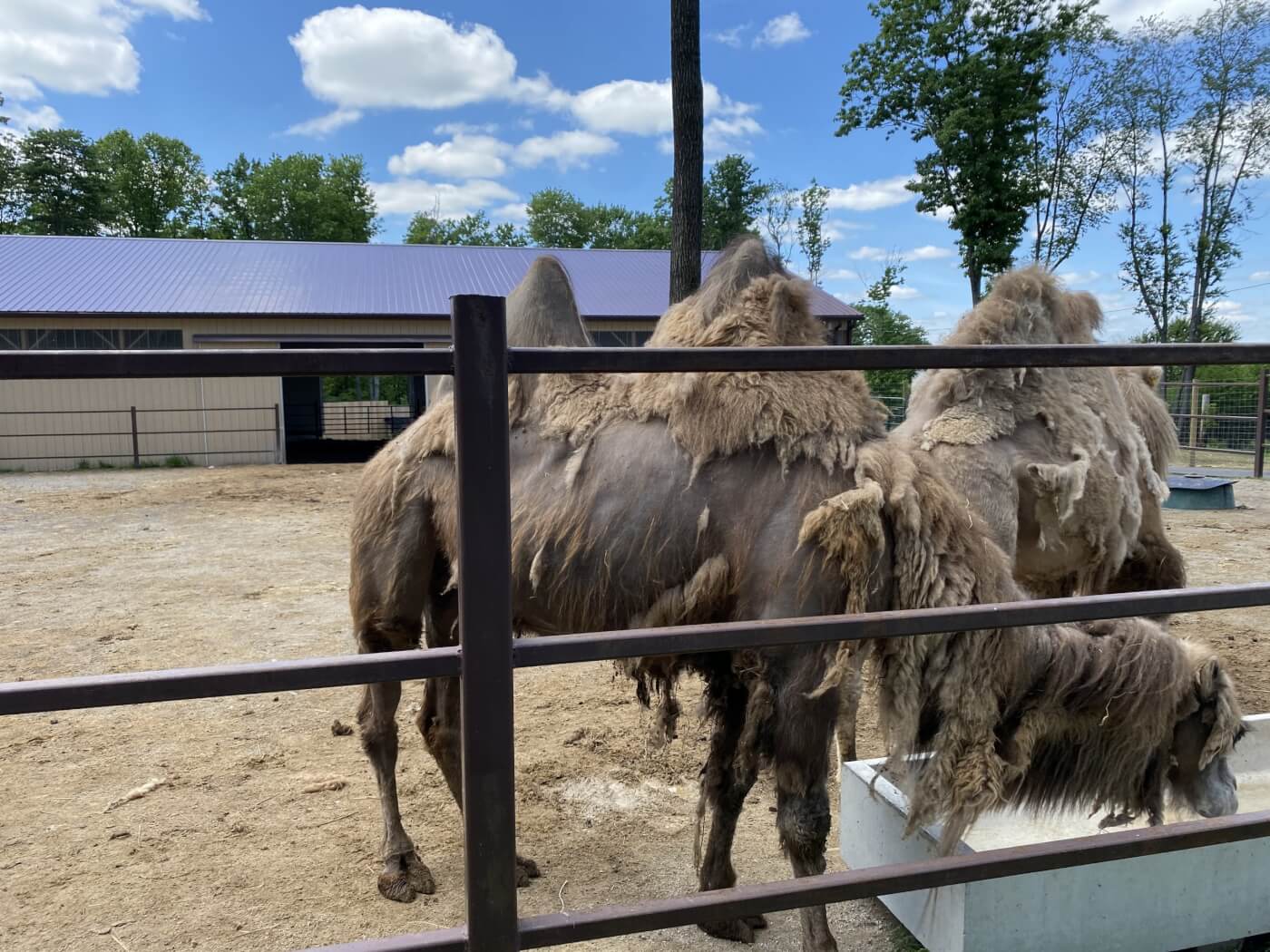
Shedding: A Natural Haircut
Shedding or molting periods occur seasonally to many mammals as a natural form of temperature management. Camels and other animals at roadside zoos can develop hair mats from their shedding that look dangerous but eventually fall off. Some enclosures have a large scratching post that helps animals take care of their coats.
General Roadside Zoo Red Flags
These general tips apply to all animals in roadside zoos, who share basic needs.
Access to Clean Water
If you don’t see a water source or if it’s filthy or empty, that may be an indication of neglect. When living in nature, animals can seek their own water sources, but in enclosures, they depend on caretakers—if they don’t have a clean, filled water dish, they won’t drink.
Enclosure Safety
Countless animals in roadside zoos are endangered by their enclosures. Some easy things to look for are sharp pieces in their habitats or ones that can otherwise cause injuries as well as dilapidated structures that could allow animals to escape.
Cleanup of Waste
If you see feces or other waste piling up in an enclosure, snap a photo. If staff neglect animals’ waste, it creates an unsafe and unpleasant environment, and animals imprisoned inside have no option but to endure it.
Is That Primate Ok?
Roadside zoos often keep primates in poor conditions and deny them adequate socialization and enrichment, which can lead to abnormal repetitive behavior. Like humans, they sometimes even harm themselves out of psychological distress.
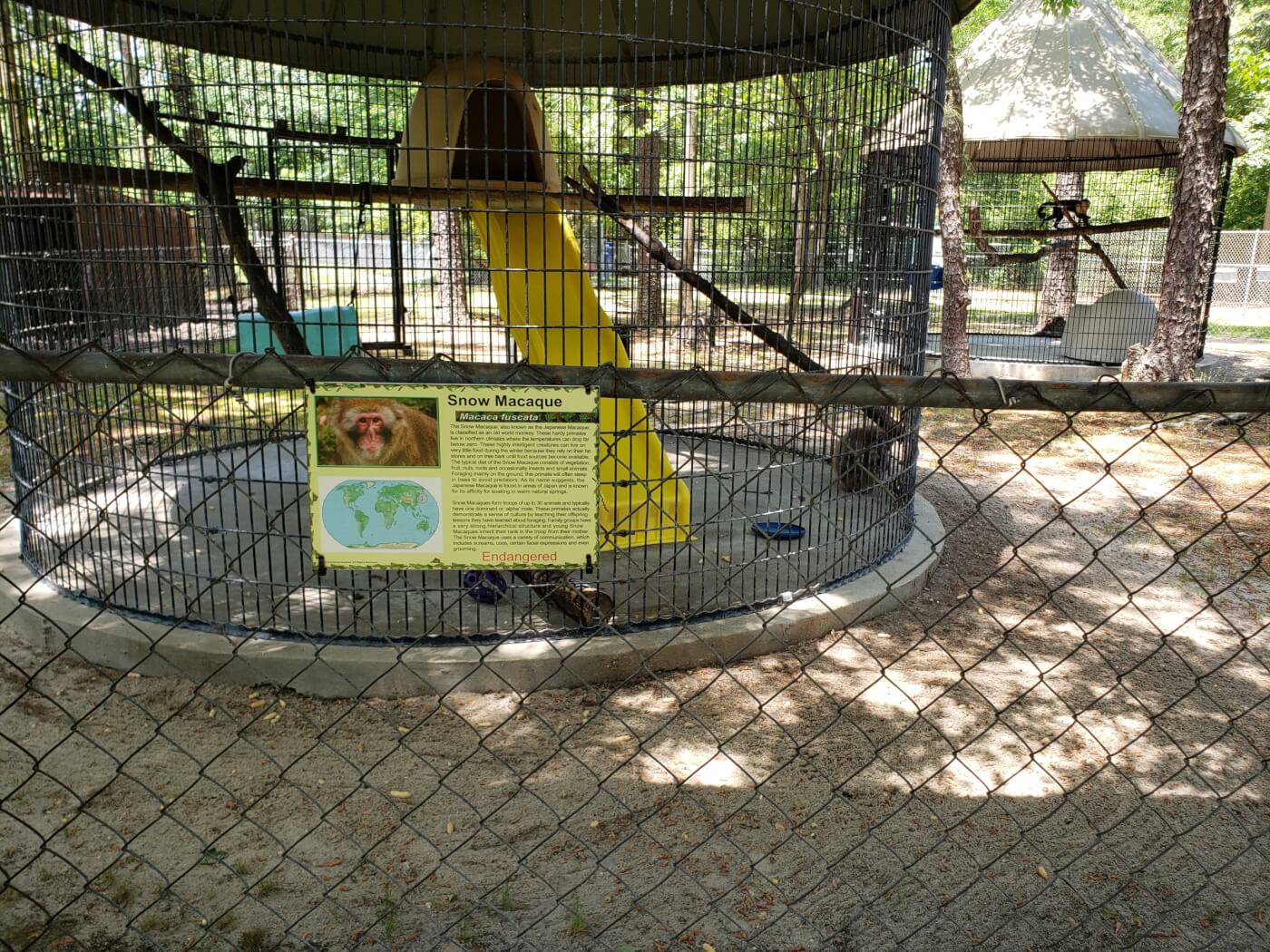
Primates Aren’t Loners
Primates are profoundly social and should never be in complete isolation. They need to see, hear, and ideally touch and groom other members of their own species for their mental well-being. If you see a primate housed alone, make note of it.
Do They Have Toys?
Primates need several clean, engaging items, including species-appropriate toys, in their enclosures so they’re not bored out of their minds.
How’s That Hairdo?
Primates with scabs or skin that’s patchy or bleeding may be overgrooming because of stress or a medical issue.
Are They Acting Right?
Repetitive behavior—like pacing, head swinging, attacking others, and biting their own bodies—is a sign of coping with intense stress.
If you see any of these signs of primate suffering or others you may suspect, reach out to PETA.
Other Animals At Roadside Zoos
Of course, primates aren’t the only animals at roadside zoos.
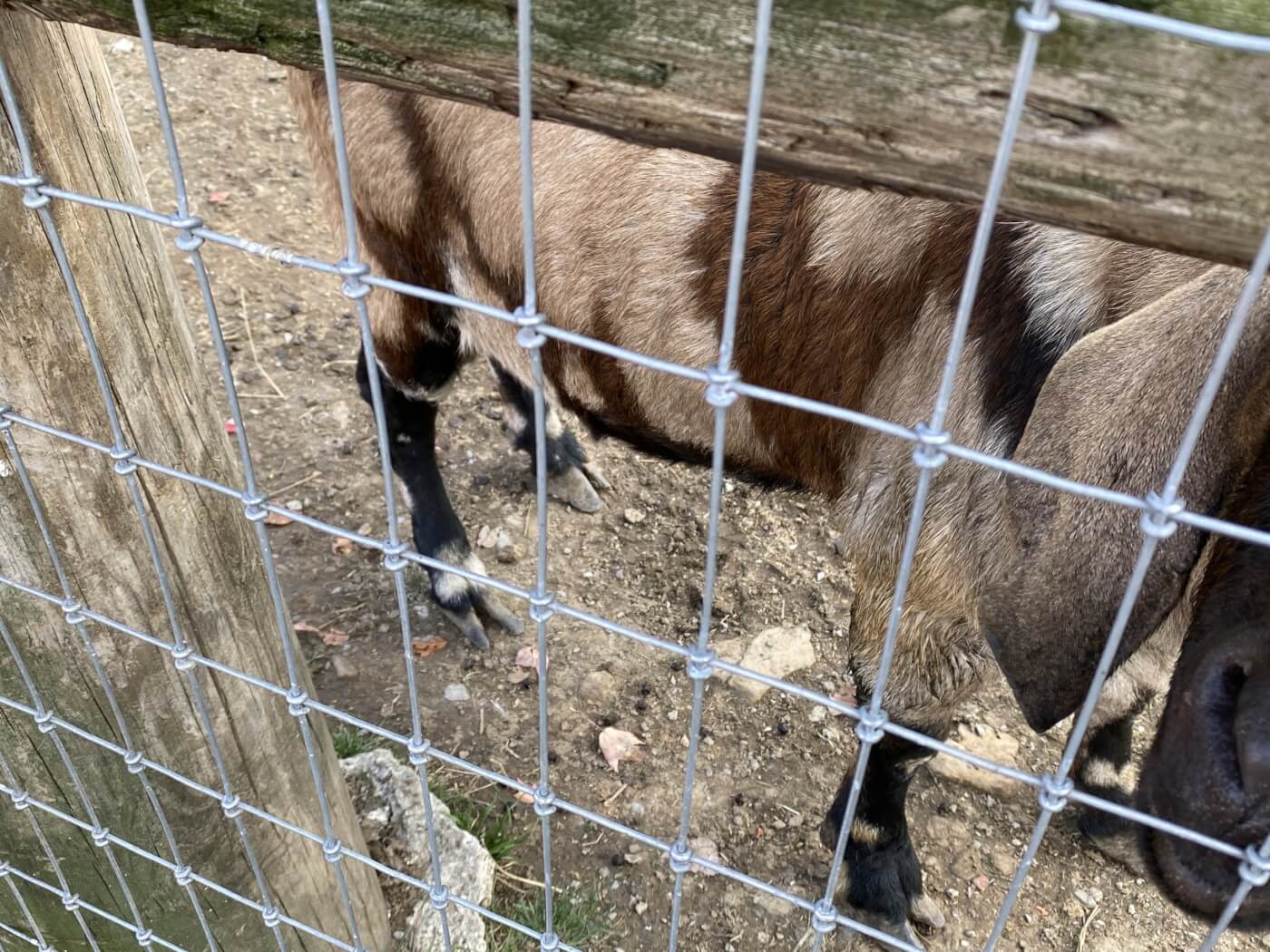
Proper Hoof Care?
Many animals in roadside zoos, especially those that allow contact with humans, have hooves—which require consistent care and careful environmental planning. Hooves, just like human fingernails, continue to grow unless they’re trimmed. Impacted hooves can cause extreme pain and even infections. If you notice an animal walking gingerly on their hooves or see signs of impaction, report it.
Hair Loss Not From Shedding
If you see hair loss on an animal that comes with patchiness, dry skin, scabs, redness, or an otherwise abnormal appearance, they may be suffering from mange, parasites, or another infection. This is distinct from shedding.
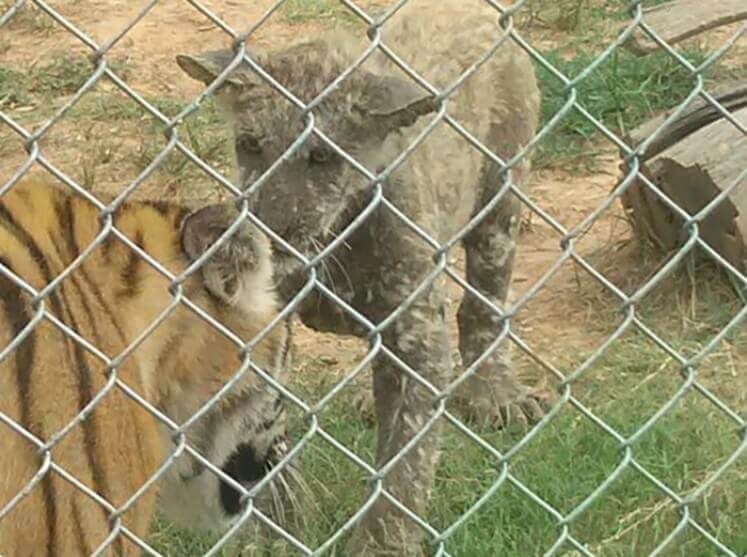
If You Need to Report a Roadside Zoo
You can send us a tip that can help us advocate for animals in roadside zoo hellholes.
Take Action for Primates in a Fake Sanctuary
Suncoast Primate “Sanctuary” in Palm Harbor, Florida, bills itself as a safe haven for primates but is just a roadside zoo in a bad disguise. Please take a moment to advocate for the release of the primates suffering inside this ramshackle facility:

